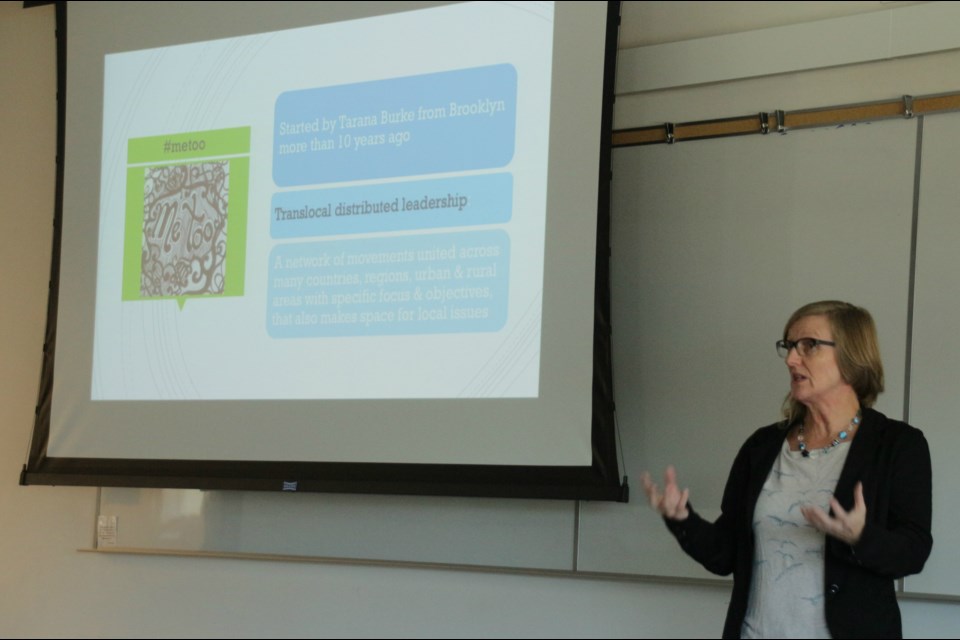Communities can become healthy if they take example from nature around them.
“Nature has a lot to teach us; we just have to be there to listen,” said Alex Thomson, contract lecturer, Department of Education, Lakehead University.
She was among the academics and researchers who were presenting their works all day Saturday at an on-campus workshop on sustainability.
In her second presentation of the day, Thomson drew parallels between human communities and ecosystems that surround them.
Her talk was based on works by Alexis Burnett, of Earth Tracks Outdoor School; Jon Young, of 8 Shields Institute; and Indigenous cultural and traditional teachings.
“You can’t teach important life skills by using tests,” she said, adding that using games and experiential learning gives young learners a better chance to ask questions as they go along.
Another important aspect of healthy communities is mentorship, Thomson said.
Research, she said, has discovered underground mycelium fungal networks that help trees communicate and support each other. Using these supportive networks, seedlings fare much better, added Thomson.
“Just like that, humans need networks to survive,” she noted. “Healthy human networks involve people of all ages and skills coming together.”
Wisdom of the elders is also an important component of healthy communities, said Thomson. It helps pass along culture and traditions using storytelling.
She said communities also need journalists to report on what goes on in a community, just as birds sound the alarms in a forest.
Sandra Jeppesen, associate professor and program coordinator of Lakehead's Media Studies program, talked about sustainable movements that help start conversations in societies.
Her talk, Hashtag activism: the media and movements of #metoo and #BlackLivesMatter, addressed the significance of grassroots campaigns that have questioned the established authority.
Hashtag activism comes about when a large number of comments online are linked across media platforms, such as the #TimesUp or the latest #MarchforOurLives movements.
Using these platforms and hashtags, Jeppesen said, people come together and activate one another.
But why Twitter?
“It’s one of the leading social media sites, where marginalized communities can get their voices out,” she said.
Anyone can use or create a hashtag to be heard, Jeppesen added.
She said hashtag activism challenges dominant power structures and compels conversations to begin so changes can be brought about in social constructs, such as racism and sexual consent.
She encouraged those attending to search within and think about how they can use hashtag activism to bring about a change in something they feel passionately about.
Many other academics and researchers presented throughout the day; their talks followed the theme of sustainability, such as in habitat assessment, the effects of phosphate on the health of Lake Simcoe, local knowledge versus scientific knowledge, and context-based education using mathematics in the garden.
